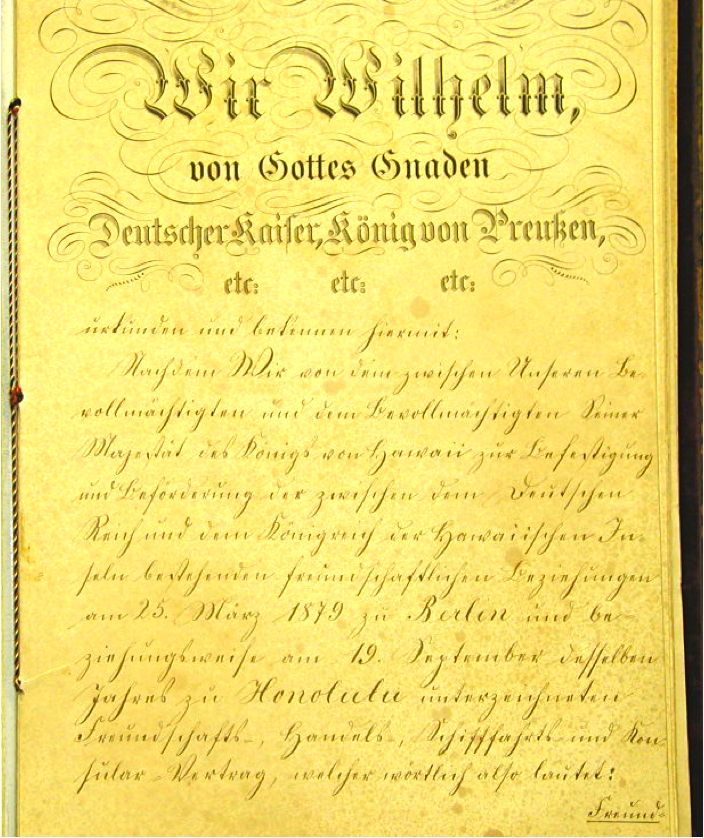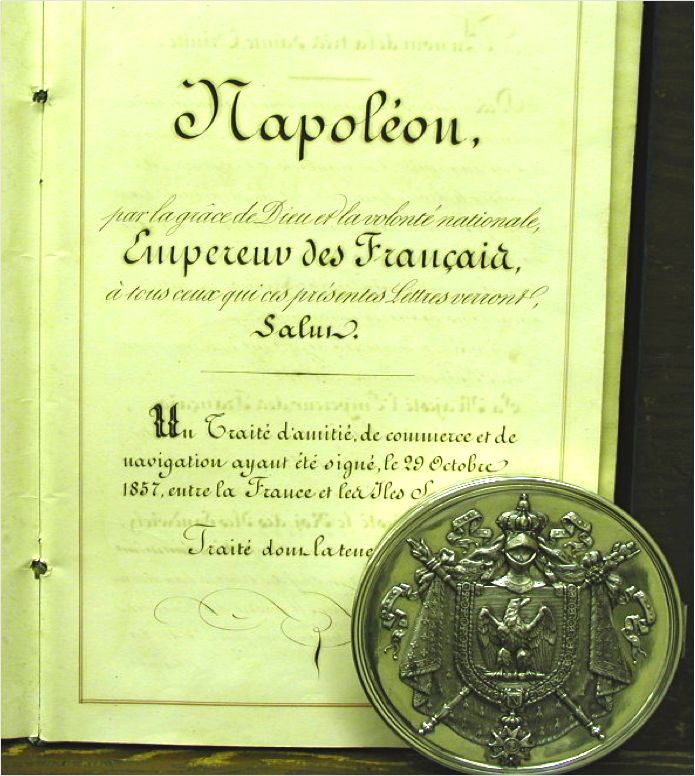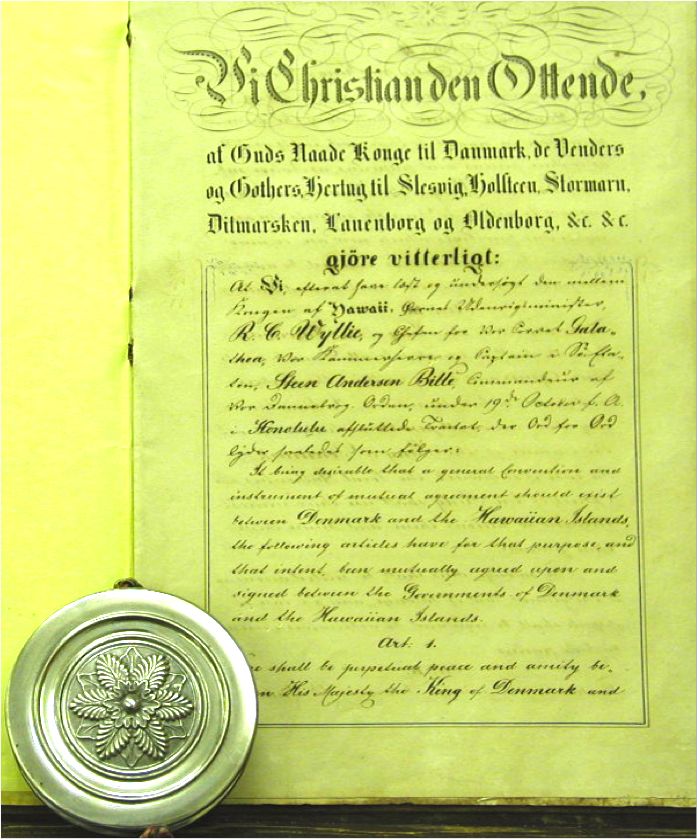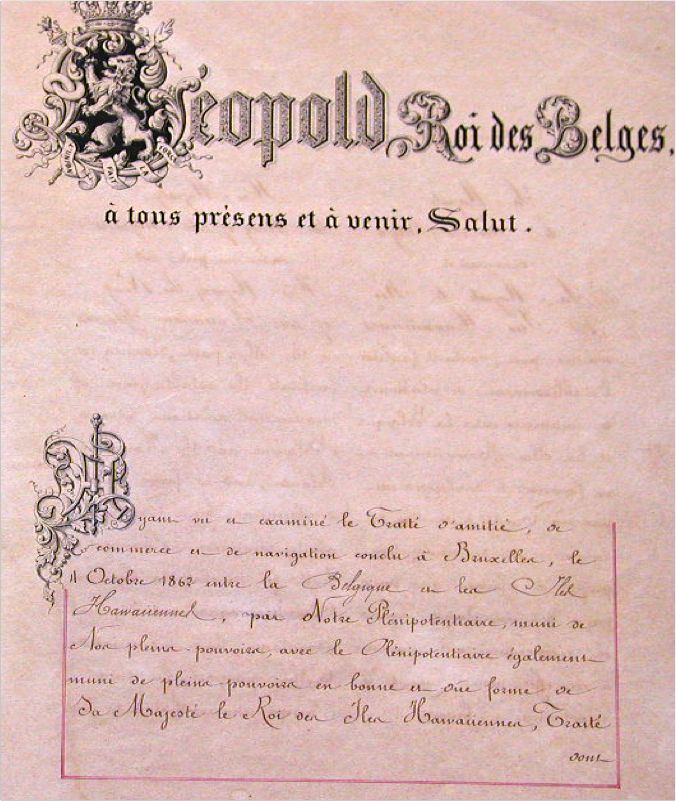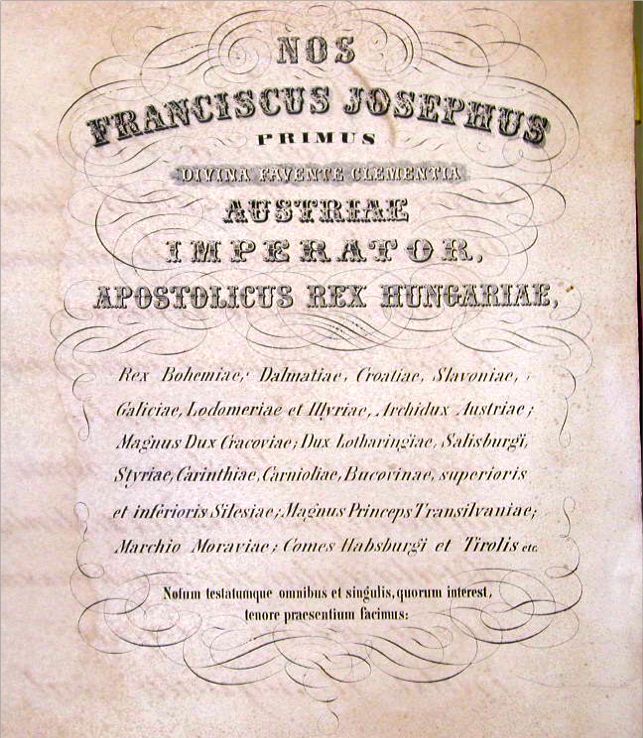The Hawaiian nationality is termed Hawaiian subject and not Hawaiian citizen. The distinction between subject and citizen is that the former is the political status of an individual in a monarchical form of government, whether absolute or constitutional, and the latter is the political status of an individual in a republic or non-monarchical government.
Under Hawaiian law, nationality can be acquired four ways:
- Born within Hawaiian territory—jus soli, also called native-born or natural-born;
- Born outside of Hawaiian territory from parents with Hawaiian nationality—jus sanguinis;
- Naturalize. The Minister of the Interior, with the approval of the Monarch, shall have the power in person upon the application of any alien foreigner who shall have resided within the Kingdom five years or more, stating his intention to become a permanent resident of the Kingdom, to administer the oath of allegiance to such foreigner, if satisfied that it will be for the good of the Kingdom. (§429, Article VIII, Hawaiian Civil Code);
- Denizen. The Monarch can confer upon any alien resident abroad, or temporarily resident in this Kingdom, letters patent of denization, conferring upon such alien, without abjuration of allegiance, all the rights, privileges and immunities of a native. The letters patent shall render the denizen in all respects accountable to the laws of the Hawaiian Kingdom, and impose upon him the like fealty to the King, as if he had been naturalized. (§433, Article VIII, Hawaiian Civil Code).
Once a State is occupied, international law preserves the status quo of the occupied State as it was before the occupation began. To preserve the nationality of the occupied State from being manipulated by the occupying State to its advantage, international law only allows individuals born within the territory of the occupied State to acquire the nationality of their parents. To preserve the status quo, Article 49 of the 1949 Fourth Geneva Convention mandates that the “Occupying Power shall not…transfer parts of its own civilian population into the territory it occupies.” To do so is a war crime.
For individuals, who were born within Hawaiian territory, to be a Hawaiian subjects they must be a direct descendant of an individual who was a Hawaiian subject prior to the illegal overthrow of the Hawaiian Kingdom government on January 17, 1893. All other individuals born this date to the present are aliens who can only acquire the nationality of their parents.
According to the 1890 government census, Hawaiian subjects numbered 48,107, with the aboriginal Hawaiians, both pure and part, numbering 40,622, being 84% of the national population, and the non-aboriginal Hawaiians numbering 7,485, being 16%. Despite the massive migrations of foreigners to the Hawaiian Islands since 1898, which, according to the State of Hawai‘i Office of Hawaiian Affairs, numbers 1,302,939 in 2009, with the aboriginal Hawaiian population at 322,812 (25.3%), the status quo of the national population of the Hawaiian Kingdom is maintained.
In other words, with the increase in numbers of Hawaiian subjects, both aboriginal and non-aboriginal, since 1893, the status quo of the Hawaiian national population has been maintained to date. Therefore, under the international laws of occupation, the aboriginal Hawaiian population of 322,812 in 2009 would continue to be 84% of the Hawaiian national population, and the non-aboriginal Hawaiian population of 61,488 would continue to be 16%. The balance of the population in 2009, being 918,639, are aliens.

